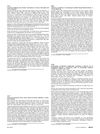October 2017 in “The Egyptian Journal of Hospital Medicine ” More young women are getting diagnosed with PCOS, which can lead to other health problems, but early treatment can help.
 January 2017 in “Open Journal of Endocrine and Metabolic Diseases”
January 2017 in “Open Journal of Endocrine and Metabolic Diseases” The document concludes that managing Dunnigan-Type Familial Partial Lipodystrophy involves treating associated health issues and using medications like metformin and leptin replacement.
December 2016 in “Asian Pacific journal of cancer biology” PCOS is a hereditary disorder that can lead to diabetes and heart disease if not treated early.
 September 2016 in “Journal of Dermatological Science”
September 2016 in “Journal of Dermatological Science” Protein extract from embryonic skin can create new hair follicles in adult life, primarily through effects on fibroblasts.
 September 2016 in “Gynecology Obstetrics and Reproductive Medicine”
September 2016 in “Gynecology Obstetrics and Reproductive Medicine” Effective treatment for skin issues in women with PCOS includes oral contraceptives, antiandrogens, and other medications and procedures.
 September 2016 in “British Journal of Dermatology”
September 2016 in “British Journal of Dermatology” Doctors need more training in skin cancer screening, a new treatment is effective for a skin condition, better diagnosis methods for skin cancer are available, hair loss in women may be linked to hormones and cholesterol, certain skin care products might cause hair loss, babies' skin gets weaker after birth, and a gene mutation might be linked to eczema.
 June 2016 in “The Egyptian Journal of Fertility and Sterility”
June 2016 in “The Egyptian Journal of Fertility and Sterility” The study concluded that personalized treatment, including medical and cosmetic approaches, is effective for women with PCOS and hirsutism.
 April 2016 in “Journal of The American Academy of Dermatology”
April 2016 in “Journal of The American Academy of Dermatology” Hirsutism and acanthosis nigricans are reliable skin signs of PCOS and suggest the need for further tests for related health issues.
 April 2016 in “Journal of The American Academy of Dermatology”
April 2016 in “Journal of The American Academy of Dermatology” Hirsutism and acanthosis nigricans are reliable skin signs of PCOS linked to metabolic issues, while acne is not a reliable marker of the condition.
 April 2016 in “Journal of The American Academy of Dermatology”
April 2016 in “Journal of The American Academy of Dermatology” Women with PCOS often have more hair growth, skin darkening, and acne, which are linked to hormonal and metabolic issues.
 April 2016 in “Journal of The American Academy of Dermatology”
April 2016 in “Journal of The American Academy of Dermatology” Women with PCOS often have hirsutism and skin changes, which indicate a need for metabolic health checks.
The chapter concludes that diet and lifestyle changes can help manage PCOS symptoms and improve fertility.
January 2016 in “대한미용학회지” Lavender oil promotes hair growth in mice.
 December 2015 in “JAMA Dermatology”
December 2015 in “JAMA Dermatology” Dermatologists can help diagnose endocrine disorders like PCOS and metabolic syndrome by looking at skin symptoms.
 December 2015 in “Kosin Medical Journal”
December 2015 in “Kosin Medical Journal” PCOS treatment should address both symptoms and metabolic risks, starting with lifestyle changes and possibly including medication.
 August 2015 in “Evidence Based Women Health Journal (Online)”
August 2015 in “Evidence Based Women Health Journal (Online)” Inositol was more effective than Metformin in treating symptoms of PCOS in women.
 May 2015 in “Evidence Based Women Health Journal (Online)”
May 2015 in “Evidence Based Women Health Journal (Online)” Inositol was more effective than metformin in improving menstrual cycles and pregnancy rates in PCOS patients.
 May 2015 in “Journal of the American Academy of Dermatology”
May 2015 in “Journal of the American Academy of Dermatology” Certain drugs and supplements may contribute to hair loss in the frontal hairline in older women.
 January 2015 in “Springer eBooks”
January 2015 in “Springer eBooks” The document concludes that managing PCOS involves lifestyle changes, medication, and monitoring for associated health risks.
 September 2014 in “Journal der Deutschen Dermatologischen Gesellschaft”
September 2014 in “Journal der Deutschen Dermatologischen Gesellschaft” Diabetes can cause a variety of skin disorders, some of which may signal more serious health issues.

Tomato extract can promote hair growth and prevent hair loss without irritating the skin.
January 2014 in “Healthy aging research” Polycystic ovarian disease symptoms can continue after menopause, making diagnosis and management in older women challenging.
 November 2013 in “John Wiley & Sons, Ltd eBooks”
November 2013 in “John Wiley & Sons, Ltd eBooks” Skin symptoms can indicate endocrine disorders and have various treatments.
 August 2013 in “Fertility and Sterility”
August 2013 in “Fertility and Sterility” High levels of fatty acids are linked to increased androgen production and inflammation in women with PCOS, which may affect IVF outcomes.

The document concludes that accurate diagnosis and management of PCOS are crucial due to its associated health risks.

Metformin is safe in early pregnancy for women with PCOS and may reduce certain risks.
Oregano extract can promote hair growth and has antioxidant benefits without being toxic.
 June 2012 in “Springer eBooks”
June 2012 in “Springer eBooks” Eating disorders can cause various hair problems, and while hair loss in these disorders is linked to metabolic syndrome, treatment focuses on specific medications and lifestyle changes for the syndrome.
 January 2012 in “Yearbook of Dermatology and Dermatologic Surgery”
January 2012 in “Yearbook of Dermatology and Dermatologic Surgery” Studying acne-related syndromes helps us understand acne causes and can lead to new treatments.
 October 2010 in “Cambridge University Press eBooks”
October 2010 in “Cambridge University Press eBooks” Lifestyle changes like diet and exercise are key for treating overweight women with polycystic ovary syndrome.























